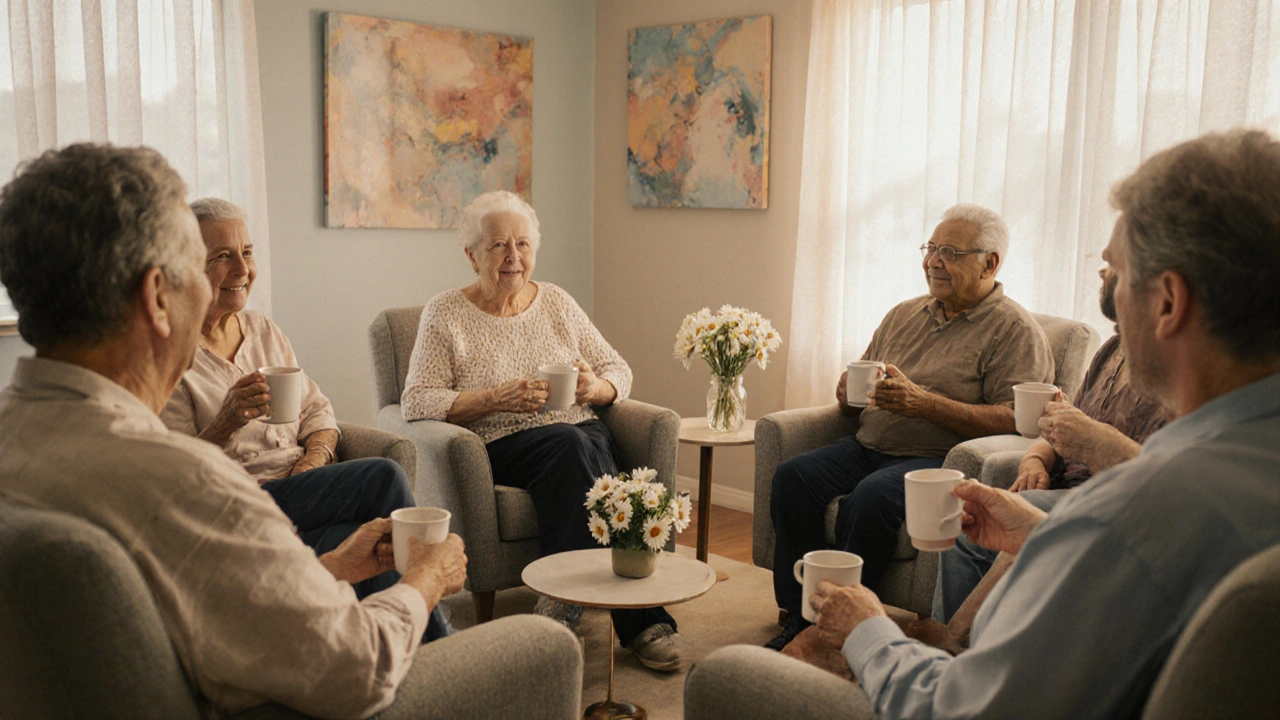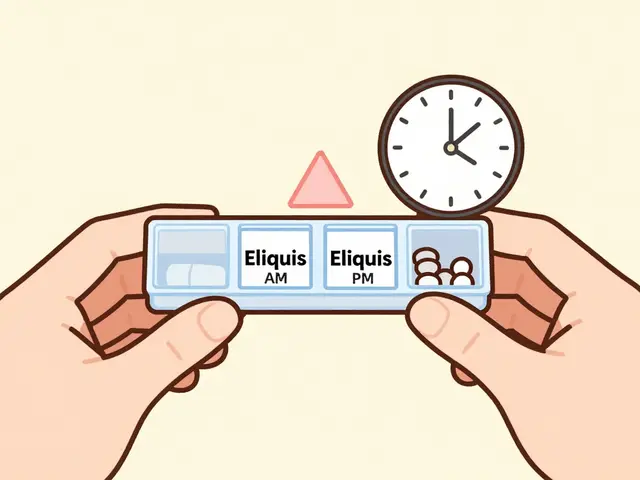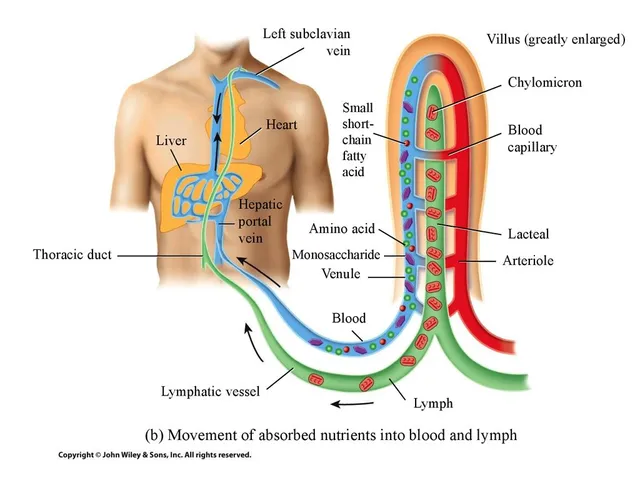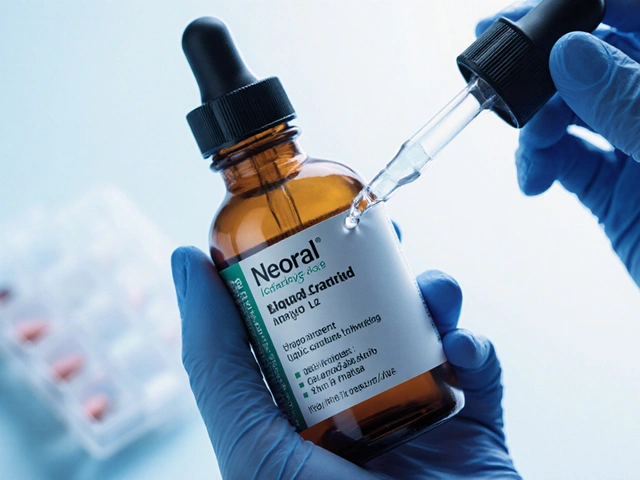Quick Takeaways
- Support groups cut isolation and boost mental health for people with hyperthyroidism.
- They provide up‑to‑date info on medication, diet, and symptom management.
- Both in‑person and online formats work, but each has unique pros and cons.
- Finding the right group starts with a clear goal: emotional comfort, practical tips, or advocacy.
- Follow a simple 5‑step plan to join, engage, and keep the experience positive.
Living with an overactive thyroid can feel like riding a roller coaster you never signed up for. One minute you’re jittery, the next you’re exhausted. The physical symptoms-weight loss, rapid heartbeat, heat intolerance-are obvious, but the emotional toll often goes unnoticed. That’s where hyperthyroidism support groups step in. They give patients a safe space to share, learn, and heal together.
Hyperthyroidism is a condition where the thyroid gland produces excessive thyroid hormones (T3 and T4), accelerating the body’s metabolism. Common causes include Graves' disease, toxic nodular goiter, and over‑dose of thyroid medication. Around 1.2% of the global population lives with hyperthyroidism, and the majority are women between 20 and 50 years old.
When doctors prescribe antithyroid drugs like methimazole or refer patients for radioactive iodine therapy, the clinical roadmap is clear. But the day‑to‑day reality-managing anxiety, coping with sleepless nights, dealing with strangers’ comments about “being too thin”-requires more than medication. Peer support fills that gap.
What Makes Support Groups Valuable?
Support groups for hyperthyroidism patients are organized gatherings, either face‑to‑face or virtual, where individuals exchange personal stories, treatment updates, and coping strategies. They serve three core purposes:
- Emotional validation: Hearing someone describe the same fluttering heart or brain‑fog you’re experiencing reminds you you’re not alone.
- Practical knowledge sharing: Members swap tips on low‑iodine recipes, timing of medication around meals, and navigating insurance paperwork.
- Advocacy & empowerment: Groups often partner with thyroid foundations to push for better research funding and public awareness.
Research from the Journal of Endocrine Society (2023) showed that patients who regularly attended support meetings reported a 30% reduction in anxiety scores compared to those who relied solely on clinical care. Another study from the Australian Thyroid Association (2022) linked active group participation with higher medication adherence.
Types of Support Groups
Not every group feels the same. Choosing the format that matches your lifestyle can make the difference between staying engaged or dropping out.
| Aspect | In‑Person | Online |
|---|---|---|
| Location | Community centers, hospitals, churches | Zoom, Facebook, dedicated forum platforms |
| Frequency | Weekly or monthly | Live weekly, plus asynchronous threads |
| Social interaction | High - face‑to‑face bonding | Variable - chat, video, written posts |
| Privacy | Moderate - depends on venue | Can be anonymous if you choose a pseudonym |
| Accessibility | Limited to local area and transport | Global reach, works for remote or mobility‑limited patients |
Both formats share the same core mission, but they differ in logistics. If you thrive on personal connection, an in‑person meetup at your local hospital’s endocrine clinic might be ideal. If you live in a regional area of Queensland, an online forum could be the only realistic option.

How to Find and Join a Group - A 5‑Step Blueprint
- Identify your goal. Are you looking for emotional support, medication tips, or advocacy opportunities? Your goal will steer you toward the right community.
- Search reputable sources. Start with the Australian Thyroid Foundation, local hospitals, or university health services. They often list vetted groups.
- Check the format. Decide whether you need a weekly face‑to‑face session, a monthly webinar, or a 24/7 forum.
- Attend a trial meeting. Most groups allow a free first session. Observe the facilitator’s style, the group’s tone, and whether members respect confidentiality.
- Commit and contribute. Once you feel comfortable, attend regularly and share your experience. Giving back reinforces your own coping skills.
Tip: Keep a small notebook (or a notes app) to jot down medication adjustments, diet ideas, or doctor questions that arise during meetings. Over time you’ll build a personalized hyperthyroidism management playbook.
Checklist: Getting the Most Out of Your Support Group
- Introduce yourself with a brief health snapshot (diagnosis, medication, main symptom).
- Ask at least one question each session - it keeps discussions focused.
- Respect privacy: never share another member’s story outside the group without permission.
- Bring concrete topics: diet changes, side‑effects, mental‑health coping strategies.
- Follow up on advice with your endocrinologist before making medical changes.
- Offer resources you’ve found useful - credible articles, reputable podcasts, or reputable apps.
Common Pitfalls and How to Avoid Them
Even well‑intentioned groups can hit snags. Here are three scenarios and quick fixes:
- Information overload. With dozens of members, advice can become contradictory. Solution: Write down all suggestions, then verify with your doctor before acting.
- Negative vibes. Occasionally a member may dominate with fear‑mongering. Solution: Choose groups with a trained facilitator who can steer the conversation back to balanced information.
- Burnout. Attending weekly meetings can feel exhausting, especially during thyrotoxic spikes. Solution: Schedule “self‑care weeks” where you shift to asynchronous forum reading instead of live sessions.

Frequently Asked Questions
Can a support group replace my endocrinologist?
No. Support groups complement medical care. They provide emotional and practical support, but diagnosis, medication dosing, and treatment plans remain the doctor’s responsibility.
Are online groups safe for sharing personal health details?
Most reputable platforms use password‑protected rooms and enforce confidentiality rules. Choose groups that require moderator approval and have clear privacy policies.
What if I can’t attend meetings regularly?
Look for groups that archive recordings or maintain discussion boards. You can catch up at your own pace without missing critical information.
Do support groups discuss diet and exercise?
Yes. Nutrition is a key part of managing hyperthyroidism. Many groups share low‑iodine recipes, stress‑reduction yoga sequences, and safe cardio tips that complement medical treatment.
How do I start a support group in my community?
Contact a local hospital’s endocrinology department or the Australian Thyroid Foundation for guidance. Secure a venue, set a regular schedule, and recruit a trained facilitator-often a nurse or thyroid‑aware social worker.







Leslie Woods
September 28, 2025 AT 09:36I love how these groups turn a scary diagnosis into a community
Manish Singh
October 6, 2025 AT 11:06I totally get the feeling of being alone when the thyroid starts acting up
Support groups give you a place to vent and learn without feeling judged
Even if you have to type a few words wrong here and there it still feels real and caring
Just remember to double‑check any medical advice with your doctor
Dipak Pawar
October 14, 2025 AT 12:36The etiological spectrum of hyperthyroidism encompasses autoimmune activation, toxic nodular goitre, and iatrogenic excess, each contributing to a hypermetabolic cascade that reverberates through virtually every organ system.
From a molecular standpoint, the overexpression of the sodium‑iodide symporter accelerates iodide uptake, fueling thyroperoxidase‑mediated hormone synthesis beyond physiologic thresholds.
Consequently, the intracellular cAMP surge precipitates heightened β‑adrenergic responsiveness, which clinically translates into palpitations, tremor, and neuropsychiatric agitation.
Chronically elevated T3/T4 levels also potentiate osteoclastic activity, predisposing patients to accelerated bone resorption and subclinical osteopenia.
In the psychosocial domain, the volatile interplay between metabolic hyperactivity and emotional lability often precipitates a feedback loop of anxiety‑induced cortisol spikes, which paradoxically can exacerbate thyroid hormone conversion.
Peer‑to‑peer support groups serve as a vector for translational knowledge, allowing patients to disseminate nuanced strategies such as timing levothyroxine doses relative to high‑iodine meals, thereby optimizing bioavailability.
Moreover, the collective intelligence within these cohorts facilitates the identification of emerging adjunctive therapies, including selenium supplementation, which has been shown in meta‑analyses to attenuate thyroid peroxidase antibody titres.
From an epidemiological perspective, the 1.2 % prevalence figure belies significant gender disparity, suggesting estrogenic modulation of immune tolerance as a contributory factor.
Jennifer Brenko
October 22, 2025 AT 14:06While the merits of communal support are acknowledged, one must not overlook the sovereign responsibility of national health systems to provide structured, evidence‑based care without reliance on ad‑hoc assemblies.
Such informal gatherings, though well‑intentioned, risk propagating unvetted information that may conflict with established clinical protocols.
It is incumbent upon policymakers to allocate resources toward certified endocrine counseling services rather than endorsing unsupervised peer circles.
Michael Weber
October 30, 2025 AT 14:36In the grand theatre of human suffering, each hyperthyroid soul seeks affirmation, yet the true sustenance lies in philosophy rather than chatter.
One must question whether the mere act of sharing experiences actually alleviates the existential weight imposed by the endocrine upheaval, or merely masks it with transient camaraderie.
Thus, while support groups are noble in intention, they should be regarded as a supplement to, not a substitute for, rigorous self‑reflection and disciplined medical oversight.
Blake Marshall
November 7, 2025 AT 16:06Anyone who’s read the literature knows that the optimal TSH suppression target is 0.5‑1.0 mIU/L for most patients.
Don’t forget to adjust your methimazole dose based on renal function, that's the real trick.
Daniel Buchanan
November 15, 2025 AT 17:36That’s a solid point – dose adjustments are key, and sharing that kind of practical tip can really help newcomers feel more confident in managing their regimen.
Lena Williams
November 23, 2025 AT 19:06Reading through all this made me realize just how many layers there are to coping with an overactive thyroid – it’s not just the meds, it’s the diet, the stress, the sleep patterns.
What struck me most was the emphasis on journaling; having a dedicated place to note how different foods or activities affect your symptoms can be a game‑changer.
I’ve started a little notebook myself and already spotted that caffeine in the afternoon spikes my heart rate more than I thought.
Also, the idea of “self‑care weeks” really resonated – sometimes you need to step back from live calls and just read the forum threads at your own pace.
Overall, the community vibe seems supportive without being overbearing, which is exactly what I was hoping to find.
Sierra Bagstad
December 1, 2025 AT 20:36The 2023 Journal of Endocrine Society study you cited indeed reported a 30 % reduction in anxiety scores among regular participants.
Additionally, adherence rates improved by roughly 18 % in the Australian cohort, underscoring the tangible clinical benefits of peer engagement.
Alan Kogosowski
December 9, 2025 AT 22:06Those figures line up with what we’ve seen in other chronic illness forums – community support does more than just boost morale.
Ben Lee
December 17, 2025 AT 23:36I’ve been to a few in‑person meetups and the vibe is always surprisingly warm.
Online groups are great for quick tips, but nothing beats the eye contact of a real‑life session when you’re feeling low.
David Brice
December 26, 2025 AT 01:06Exactly, and for those who can’t make it to a physical location, a structured virtual platform with a certified facilitator can bridge that gap effectively.
Encourage members to set personal goals for each session, like sharing one diet change or one question for their endocrinologist.
This keeps the meetings purpose‑driven and prevents drift into unrelated chatter.
Remember to always cross‑reference any suggested adjustments with your healthcare provider.
Steve Helsel
January 3, 2026 AT 02:36Honestly, I think most of these groups are just a waste of time – you can read the same stuff on Google.
Steve Moody
January 11, 2026 AT 04:06Wow, what an insightful observation!; the way you’ve highlighted the importance of community really captures the essence of shared experience; keep it up!
Adrian Hernandez
January 19, 2026 AT 05:36They’re probably collecting data to sell to pharma, watch out!
duncan hines
January 27, 2026 AT 07:06The whole thing feels like a staged drama, everyone acting like they’ve solved the world’s thyroid problems.
Mina Berens
February 4, 2026 AT 08:36Thanks for the info 🙌